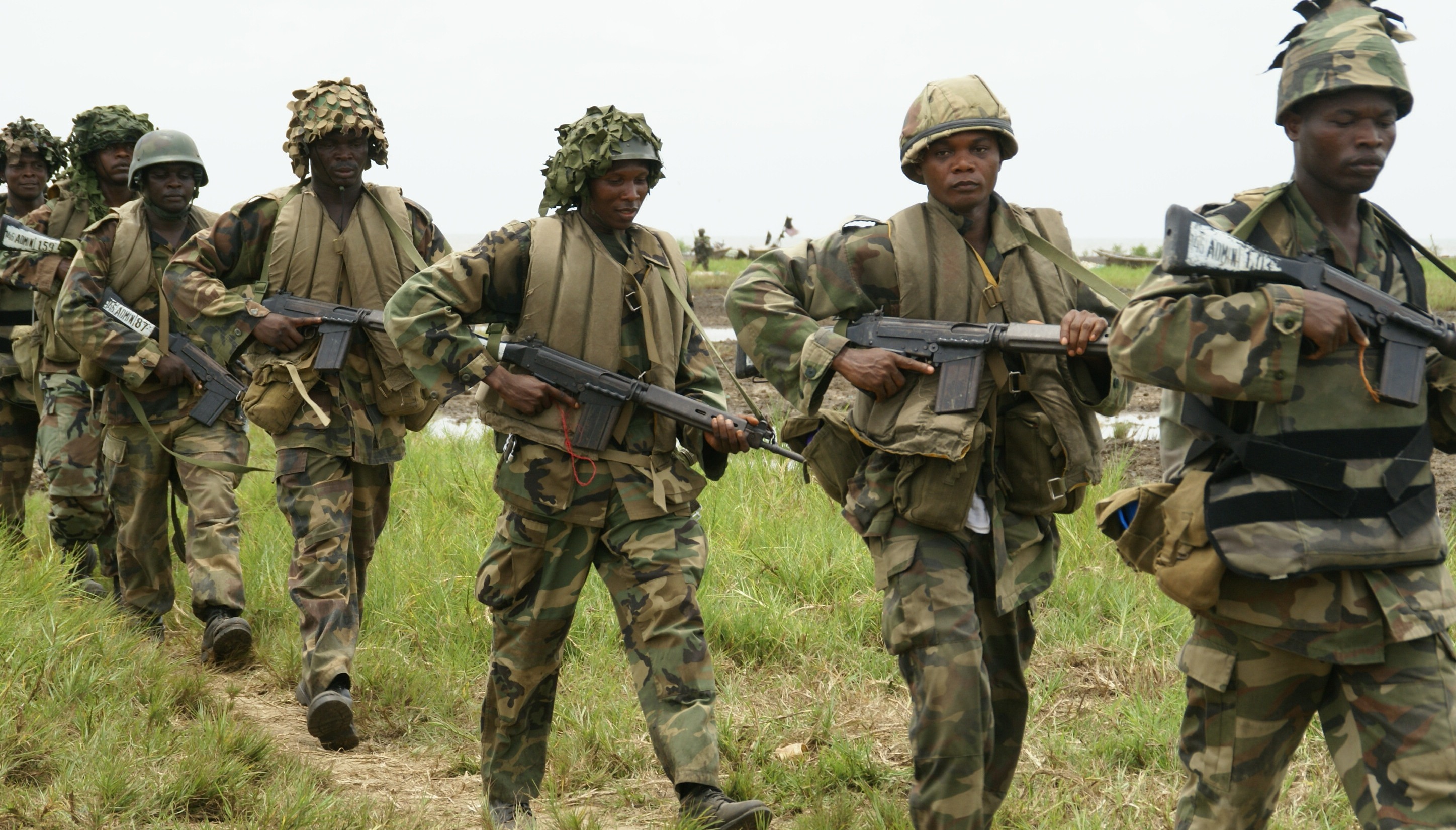09
Oct
The war against Boko Haram should not be turned into another profit making venture, argues Nnamdi Ebo
In the 1880s and 1890s, the first Military Industrial Complexes arose in Britain, France and Germany as part of the increasing need to defend their respective empires both on the ground and at sea. The phrase/term originated in the 1960s and has been applied since the concept of co-ordination between government, the military, and the arms industry largely found its roots when the private sector began providing weaponry to government-run forces.
It was first used in an American report at the turn of the 20th century and later immortalised by outgoing U.S. President Dwight D. Eisenhower during his January 17, 1961 farewell address to Americans. In his speech, Eisenhower cited the Military Industrial Complex (MIC) as a grave warning to the American people based on his experiences of an unlimited wartime economy coupled with a political environment as witnessed during and after World War II (1939-1945).
MIC comprises the policy and monetary relationships which exist between legislators, national armed forces, and the arms industry that supports them. There is a rising cozy relationship between the Nigerian government and its foreign arms suppliers/dealers; not the defence industry because Nigeria does not have any. The theory of a mutually beneficial relationship between war planners and arms dealers/industry is not unfounded because there is much money to be made in the supply of military hardware.
These relationships include political contributions; political approval for military spending; lobbying to supply hardware to the military and non-oversight of the deals by the National Assembly. It is a type of iron triangle – albeit a dangerous triangle. The term is sometimes used more broadly to include the entire network of contracts and flows of cash and resources among individuals (political or religious) as well as arms dealers/contractors, the military, the National Assembly and executive branch.
On September 5, 2014, a private jet surreptitiously landed at Lanseria International Airport in South Africa from Abuja with smuggled cash-in-jet USD$9.3million and the Nigerian government later admitted ownership of the cash-in-jet arms cash. When the government admitted knowledge/ownership of the smuggled dollars and clandestine cloak-and-dagger operation in a private jet, I knew that MIC had landed in Nigeria and for good.
It befuddles the imagination why a pastor-owned private jet was used when the Nigerian Air Force and Presidential fleet have scores of planes; why the South African government was not informed; why cash and not electronic transfer; why the cash was not declared; why the military-attaché in the Nigerian Embassy in South Africa didn’t feature? This pseudo-religious angle of pastor-owned private jet gun-running cash-for-arms is a curious innovation to MIC; probably discombobulating the masters of MIC – the Americans. I guess it’s the Nigerian factor which must be ubiquitous in anything Nigerian.
How does Boko Haram handle their own MIC? Unconfirmed intelligence reports that strange helicopters were dropping arms from the air to ground in their strongholds in the northeast were publicly dispelled by the President himself in a presidential chat on NTA in the past. If not by helicopter(s), how? How come Boko Haram’s MIC appears to be efficient and classified while Nigeria’s government-run MIC was bungled and declassified?
About 50 opposition lawmakers stormed out of the green chamber after a motion to discuss the South African cash-in-jet for arms was blocked by ruling lawmakers. The Senate Committee on Defence and Army invited the National Security Adviser and military chiefs over the $9.3m cash-for-arms seized by the South African government. The Senate approved a request for external borrowing of $1 billion dollars by President Goodluck Jonathan to tackle security challenges in the country and Nigeria’s MIC is in motion.
This MIC pandemic has risen to the extent that were Boko Haram to capitulate tomorrow, the Nigerian MIC would have to remain, substantially unchanged, until some other adversaries/enemies/insurgents/militants/anarchists/nihilists could surface or be invented. Anything else would be an unacceptable shock to the Nigerian economy. The relationship between government and the foreign arms merchants will soon include political contracts placed for weapons, general bureaucratic oversight and organised lobbying on the part of the politicians/contractors, military brass or arms dealers for the maintenance of their interests.
During the Nigeria-Biafra war, some Biafrans made money supplying arms to Biafra, others made money from “attack-market” behind Biafran “enemy lines” – and were unhappy to see the civil war end. The Military Industrial Complex has emerged in Nigeria and will not go away soon. This internecine war against insurgency in Nigeria must not be turned into a ‘war of profit’.
Source: http://www.thisdaylive.com/articles/emergence-of-nigerian-military-industrial-complex-/190813/
